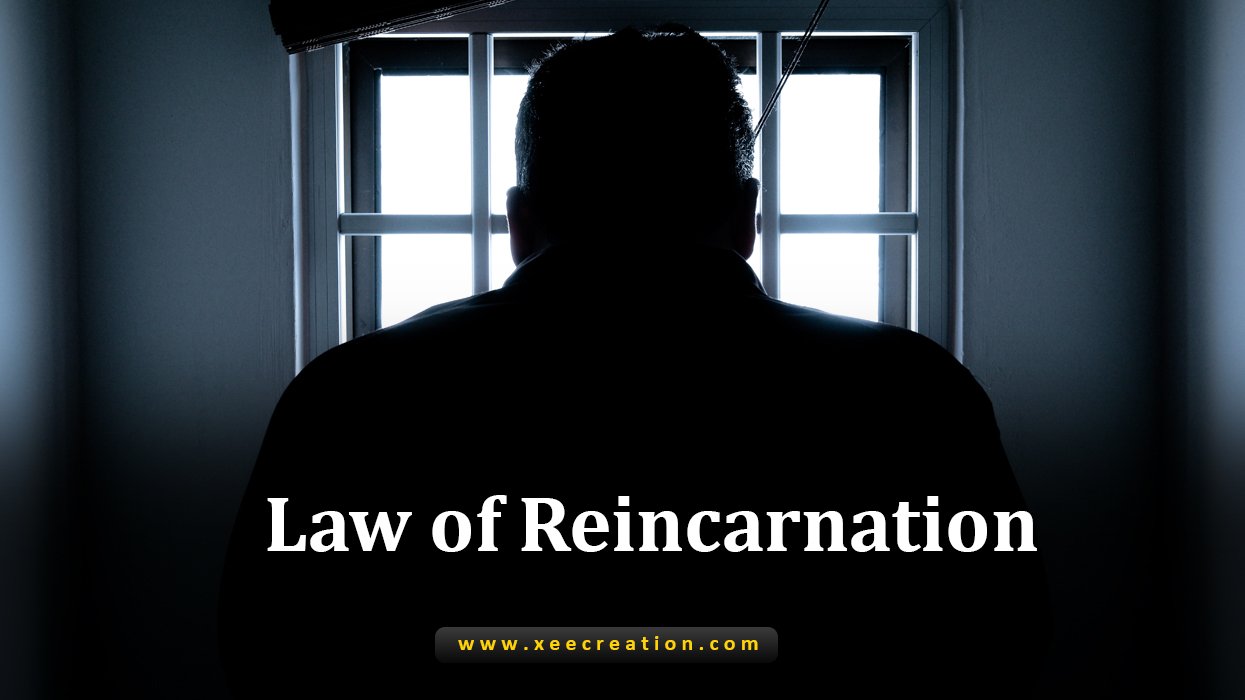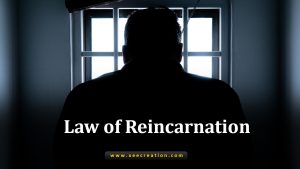Practical Implications of the Law of Reincarnation: 4 Ways It Impacts Personal Growth
Introduction
The concept of reincarnation has fascinated humanity for centuries. Many spiritual traditions and belief systems embrace the idea that souls are reborn into new bodies after death, carrying the lessons and experiences of previous lives. While reincarnation is often associated with religious and spiritual ideologies, some researchers have delved into the phenomenon from a scientific and empirical perspective. One such investigation is the study of the Law of Reincarnation, a raw exploration into the mysteries of past lives. This article will delve into the Law of Reincarnation, its principles, and the evidence supporting its existence.
What is the Law of Reincarnation?
The Law of Reincarnation, also known as transmigration or metempsychosis, is the philosophical and spiritual concept that suggests a person’s soul or consciousness is reborn into a new body after death. According to this belief, the cycle of birth, death, and rebirth continues until the soul achieves spiritual enlightenment or liberation from the process, commonly referred to as moksha or nirvana.
Principles of the Law of Reincarnation
- Soul Continuity: The Law of Reincarnation posits that the essence of an individual, often referred to as the soul, is eternal and exists beyond physical existence. The soul carries the accumulated knowledge, wisdom, and spiritual growth from one lifetime to another.
- Karma and Life Lessons: Reincarnation is closely tied to karma, which suggests that our actions in one life determine our experiences in future lives. The Law of Reincarnation teaches that individuals reincarnate to learn essential life lessons and to resolve past karmic debts or unfinished business.
- Spiritual Growth and Evolution: The purpose of reincarnation is believed to be spiritual growth and evolution. Each lifetime presents new challenges and opportunities for personal and soul development. Through various experiences and lessons, the soul progresses toward higher levels of consciousness and enlightenment.
Evidence Supporting the Law of Reincarnation
- Past Life Regression: Past life regression therapy involves accessing and exploring memories and experiences from previous lives through hypnosis or deep relaxation. Many individuals who undergo past life regression report vivid and detailed accounts of their past lives, often providing historically accurate and verifiable information.
- Reincarnation Stories and Memories: Numerous accounts of spontaneous recall of past lives have been documented. Children, in particular, have shared detailed and consistent memories of events, places, and people from previous lives. In some cases, these memories have been verified by independent investigations and historical records.
- Birthmarks and Physical Characteristics: Some individuals who claim to remember past lives also bear birthmarks or physical anomalies corresponding to injuries or markings from their previous incarnations. These cases suggest a connection between the physical body in one life and the next life.
- Talents, Skills, and Phobias: Unexplained talents, skills, and abilities that emerge early in life and cannot be attributed to recent life experiences are often cited as evidence of past experiences. Similarly, irrational fears and phobias that have no basis in current traumas may be linked to past life experiences.
- Cultural and Historical Knowledge: There have been instances where individuals, especially young children, possess detailed knowledge of specific historical events, cultures, and languages that they could not have learned in their current lifetime. This knowledge aligns with the theory of carrying memories and experiences from past lives.
Criticism and Skepticism
As with any controversial topic, the Law of Reincarnation faces criticism and skepticism. Skeptics argue that the evidence presented can be attributed to false memories, suggestibility, or coincidence. Others claim that the phenomenon can be explained through psychological and neurological processes, such as cryptomnesia or confabulation. Additionally, cultural and religious biases may influence the acceptance or rejection of reincarnation.
Scientific Perspectives on Reincarnation
- Ian Stevenson’s Research: Dr. Ian Stevenson, a renowned psychiatrist and researcher, dedicated decades to studying cases suggestive of reincarnation. He meticulously documented thousands of accounts of children who claimed memories of past lives. His research provided compelling evidence for the plausibility of reincarnation.
- Dr. Jim Tucker and the Division of Perceptual Studies: Following Dr. Stevenson’s footsteps, Dr. Jim Tucker continues investigating cases of children who recall past lives. As the Division of Perceptual Studies director at the University of Virginia, he conducts scientific research to explore the possibility of reincarnation and its implications.
- Quantum Physics and Consciousness: Some scientists and researchers propose that quantum physics may provide a framework to understand consciousness and phenomena like reincarnation. The concept that consciousness is fundamental and transcends the physical body aligns with the idea of the soul existing beyond death and being reborn.
Practical Implications of the Law of Reincarnation
- Personal Growth and Self-Reflection: Embracing the Law of Reincarnation encourages individuals to reflect on their actions, life lessons, and personal growth. It offers an opportunity for self-improvement and understanding that one’s current circumstances are part of a more significant spiritual journey.
- Compassion and Empathy: Belief in reincarnation fosters empathy and compassion towards others, as it acknowledges that individuals may be experiencing their own unique paths and challenges based on past life experiences.
- Healing Trauma and Phobias: Past life regression therapy and other regression techniques can help individuals uncover and heal unresolved traumas or phobias that may have originated in previous lives. This approach provides an alternative method for addressing deep-rooted issues.
- Understanding Life Purpose and Relationships: Exploring past lives can provide insights into life purpose, soul contracts, and the dynamics of relationships. It offers a broader perspective on the interconnectedness of individuals and the lessons they are meant to learn together.
Conclusion
While the Law of Reincarnation continues to be debated and investigated, the evidence and accounts supporting its existence offer intriguing possibilities. Whether viewed from a spiritual or scientific lens, the concept of past lives and the cycle of reincarnation provides a profound framework for understanding personal growth, interconnectedness, and the mysteries of human existence. As humanity continues to explore the depths of consciousness and the nature of reality, the Law of Reincarnation remains an intriguing avenue of inquiry into the soul’s eternal journey.
Frequently Asked Questions about the Law of Reincarnation:
Q: What is the Law of Reincarnation?
A: The Law of Reincarnation is the belief that souls or consciousnesses are reborn into new bodies after death, allowing for a continuous cycle of birth, death, and rebirth.
Q: Is the Law of Reincarnation a religious concept?
A: While reincarnation is often associated with various religious and spiritual traditions, the belief in reincarnation extends beyond specific religious boundaries and can be found in different cultural and philosophical systems.
Q: What is the purpose of reincarnation according to the Law of Reincarnation?
A: The purpose of reincarnation is believed to be spiritual growth and evolution. Individuals reincarnate to learn life lessons, resolve karmic debts, and progress toward higher levels of consciousness and enlightenment.
Q: Is there any scientific evidence supporting the Law of Reincarnation?
A: While the scientific investigation of reincarnation is ongoing, there have been cases of past life memories, birthmarks corresponding to past life injuries, and other phenomena that suggest a connection between past lives and current experiences. Researchers like Dr. Ian Stevenson and Dr. Jim Tucker have conducted extensive studies in this field.
Q: How can past life memories be accessed?
A: Past life memories can be accessed through past life regression, hypnosis, or deep relaxation. These methods allow individuals to tap into subconscious memories and recall details from their past lives.
Q: Can reincarnation explain talents, skills, and phobias in individuals?
A: The Law of Reincarnation suggests that talents, skills, and phobias can be carried over from past lives. Unexplained abilities or knowledge that cannot be attributed to recent life experiences may indicate past connections.
Q: Are there any practical implications of believing in the Law of Reincarnation?
A: Belief in the Law of Reincarnation can lead to personal growth, self-reflection, compassion, and healing. It offers a broader perspective on life purpose, relationships, and the interconnectedness of individuals.
Q: Are there any criticisms of the Law of Reincarnation?
A: Reincarnation faces criticisms from skeptics who argue that evidence can be attributed to false memories or suggestibility. Some view the concept as incompatible with their cultural or religious beliefs.
Q: Can the Law of Reincarnation be reconciled with scientific understanding?
A: Some scientists and researchers propose that the concept of consciousness and phenomena like reincarnation may be understood within the framework of quantum physics. However, further research is needed to explore this connection.
Q: Does the Law of Reincarnation suggest a specific number of past lives?
A: The Law of Reincarnation does not specify a particular number of past lives. It suggests a continuous cycle of birth and rebirth until spiritual enlightenment or liberation from the process is achieved.
Q: Is belief in the Law of Reincarnation necessary for personal or spiritual growth?
A: Belief in the Law of Reincarnation is unnecessary for personal or spiritual growth. It is a private belief system that individuals may or may not resonate with. Different paths can lead to personal development and spiritual evolution.
Find This Article On YouTube Link Bellow



1 thought on “Practical Implications of the Law of Reincarnation: 4 Ways It Impacts Personal Growth”